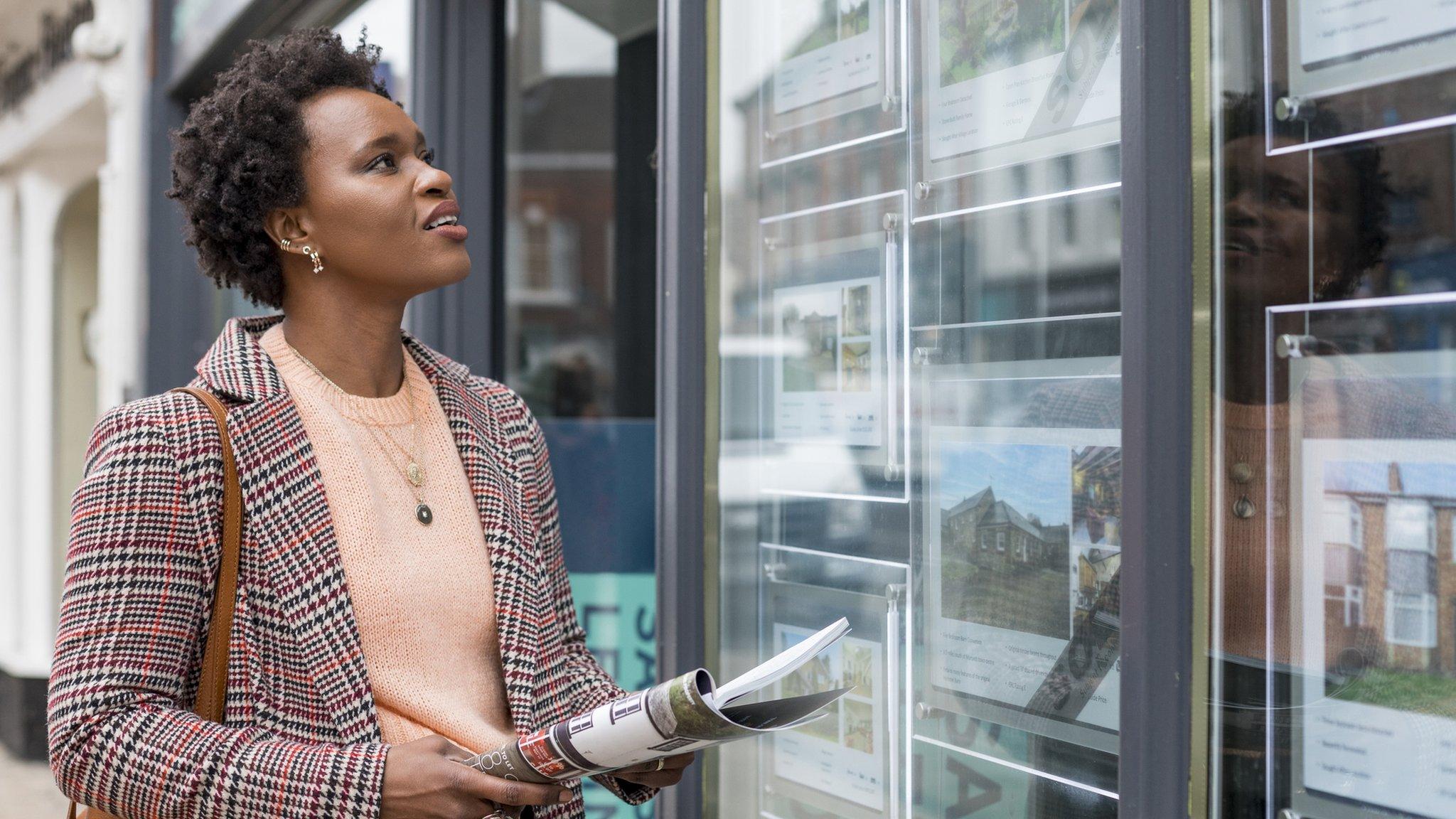House prices fall for fifth month in a row
- Published
- comments
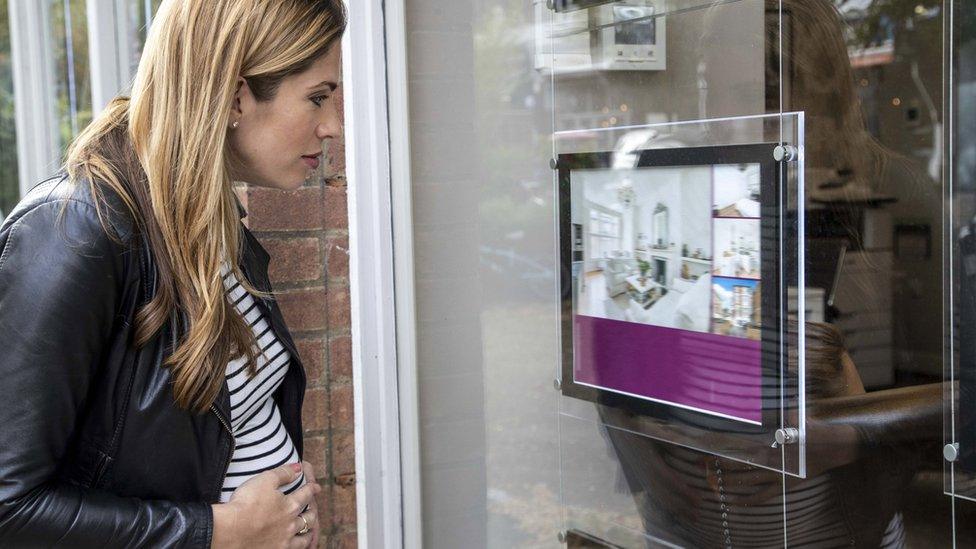
House prices in the UK fell for the fifth month in a row in January, according to Nationwide Building Society.
The price of the average property last month was £258,297, down by 0.6% on December.
Annual house price growth slowed to 1.1%, down from 2.8% in December.
The country's biggest building society said it would be "hard for the market to regain much momentum in the near term."
Robert Gardner, chief economist at Nationwide, said "economic headwinds are set to remain strong", as rising prices continue eating into household budgets.
He added that the affordability of mortgages would "remain challenging" in the short term due to higher interest rates, while saving for a deposit was "proving a struggle for many given the rising cost of living".
Mortgage approvals fall
On Tuesday, the Bank of England reported lenders had approved fewer mortgages than expected in December, about 35,000 compared with more than 46,000 in November.
That is the lowest number since January 2009, excluding the pandemic lockdowns.
Nationwide said the decline in approvals followed a big slowdown in mortgage applications following the government's mini-budget in September.

However, it said there were signs mortgage rates were slowly starting to improve.
"Longer-term interest rates have started to edge down and should we see that continue, that should feed into lower mortgage prices and provide some easing in the affordability pressures," its senior economist Andrew Harvey told BBC Radio 4's Today programme.
Rising rates
Mortgage rates rose throughout last year as the Bank of England put up interest rates to tackle the soaring cost of living.
But they spiked above 6% - their highest level for 14 years - after Liz Truss's mini-budget sparked panic on financial markets.
Since then markets have calmed and mortgage rates have fallen back somewhat, but they remain much higher than a year ago.
Gabriella Dickens, a senior UK economist at Pantheon Macroeconomics, said: "Nationwide's data show that house prices are continuing to buckle under the pressure of elevated mortgage rates, squeezed real incomes and weak consumers' confidence."
And while annual house prices are still rising, albeit more slowly than before, Tom Bill, head of UK residential research at Knight Frank, said the UK housing market was "headed for an annual fall in prices as mortgage rates remain notably higher than 12 months ago".
"We expect prices to decline 10% over the next two years as budgets get recalculated."
Nationwide's latest figures suggest mortgages are less affordable in all regions compared with 2021, with the cost of servicing the typical mortgage as a share of take-home pay at or above the long-run average.
London and the south of England face the biggest "affordability pressures", with Scotland and the North remaining the most affordable regions, but mortgage payments there as a share of take-home pay are still at their highest level for more than a decade.


Caution abounds in the housing market at present.
Sellers may price down if they really need to secure a purchase. Would-be buyers, aware of predictions of further house price falls, may be delaying any decision to make a move.
First-time buyers who would usually welcome dropping prices are having to contend with mortgage rates higher than they might have expected. The cost of living could also be hampering their ability to save for a deposit.
But - as the Nationwide acknowledges - the UK housing market is made up of often very different regions and neighbourhoods. Individual circumstances and local dynamics can be just as important as the wider economic picture.

- Published6 January 2023
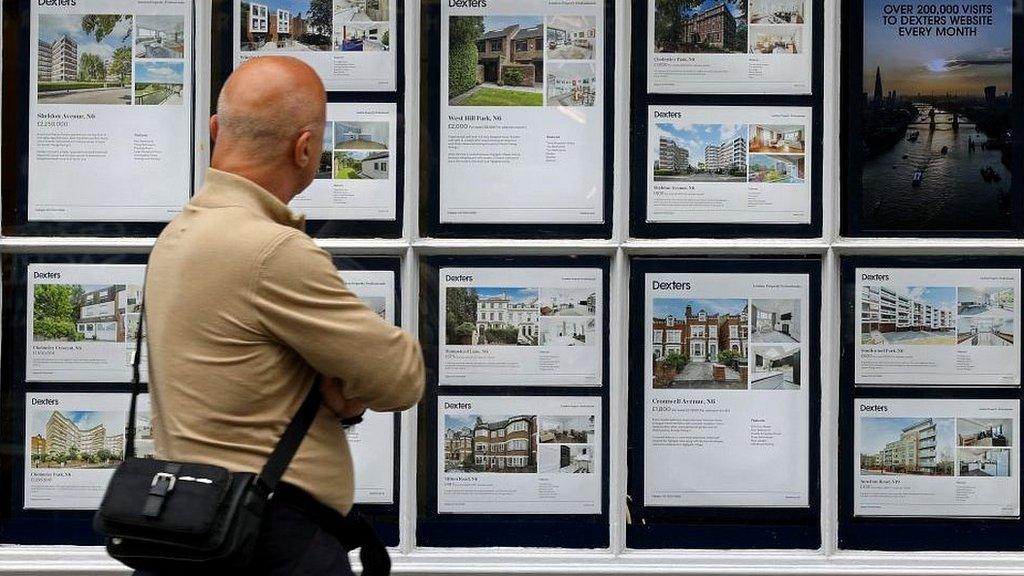
- Published1 August 2023
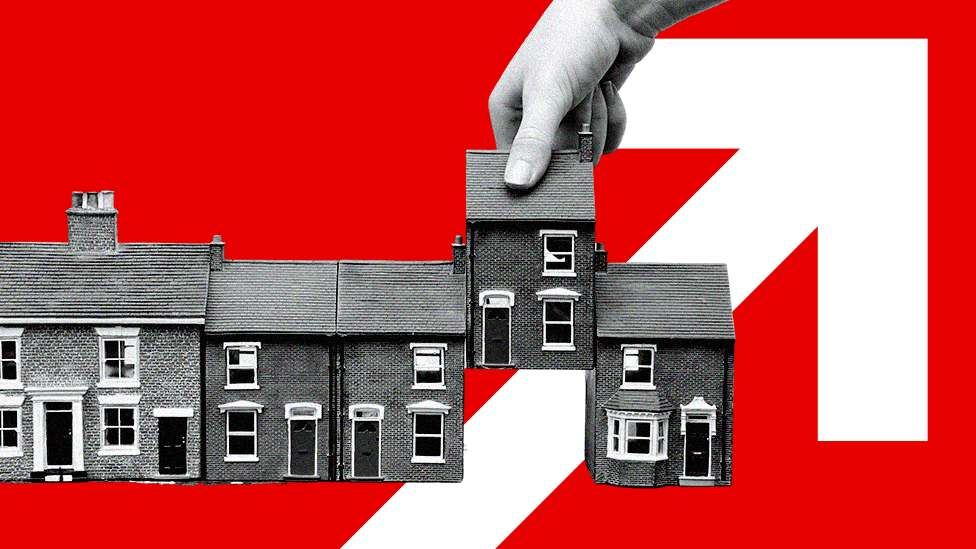
- Published1 December 2022
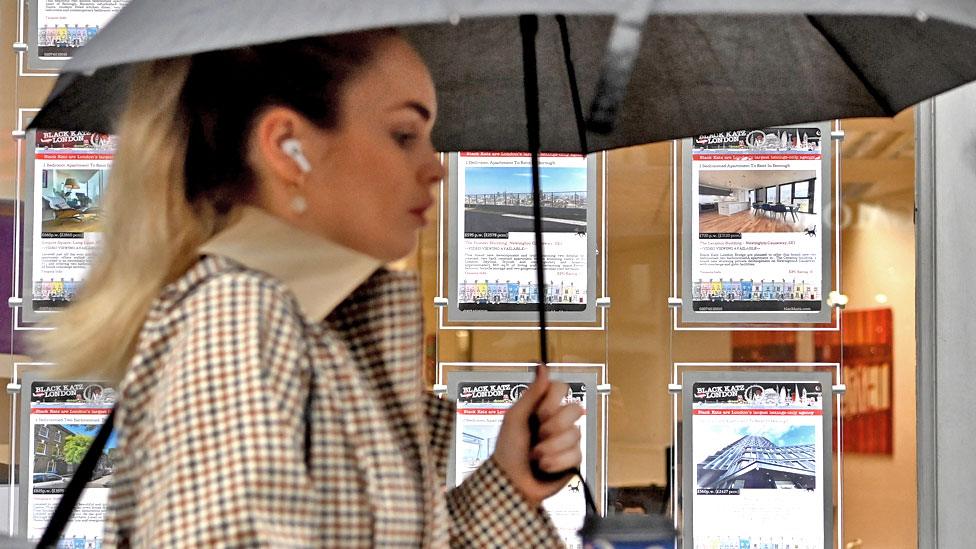
- Published18 November 2022
